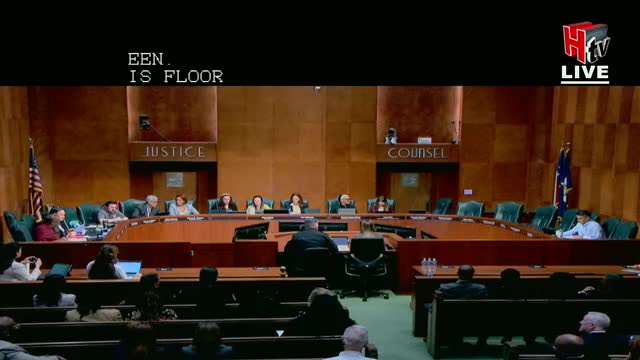Police, Fire and Solid Waste Outline Steps to Curb Overtime as Departments Add Staff and Restructure
Get AI-powered insights, summaries, and transcripts
Subscribe
Summary
Chiefs and directors from police, fire and solid waste told the Budget & Fiscal Affairs Committee the city has begun to curb overtime through tighter supervision, larger recruitment classes and operational scheduling changes, but acknowledged ongoing pressures from minimum staffing rules, training and special events.
The Budget & Fiscal Affairs Committee held a department‑by‑department review of overtime usage on Nov. 2025, hearing presentations from the Houston Police Department, Houston Fire Department and Solid Waste operations about causes and mitigation strategies.
Police Chief Noe Diaz told the committee HPD has tightened oversight of overtime with a new dashboard and closer supervisor intervention. HPD presented three‑year figures showing large OT variances in prior years: FY24 overtime budget $19.9 million with actual overtime of about $38.9 million (roughly $18.9 million over budget), and FY25 overtime budget $33.0 million with actuals near $39.0 million. For FY26 the department's annual overtime budget was $14.8 million and year‑to‑date actuals were about $6.0 million. Diaz said some prior OT increases were caused by unplanned events such as hurricanes or winter storms and that HPD is “being very disciplined with the resources” to avoid recurring overtime spends. On the DART (co‑response) program, Diaz said funding is not available "at this moment," and the department is managing by adjusting schedules.
Fire Chief Tom Munoz told the committee the fire department's overtime is largely driven by minimum staffing requirements established by National Fire Protection Association standards; HFD cited a daily minimum of 849 riding positions that must be staffed to maintain station coverage. Chief Munoz said overtime also reflects training, special events, leave and parental/prenatal policies implemented in 2022; department staff estimated that those wellness policies contribute several million dollars annually to overtime costs. Munoz reported a sharp decline in out‑of‑service apparatus ("brownouts") compared with the prior quarter — an operational improvement the department credited to hiring and scheduling changes — and described large cadet classes and paramedic training as steps toward long‑term vacancy reduction.
Solid Waste leadership described operational changes to reduce overtime, including a shift from 4x10 schedules to a 5‑day operation to reduce Wednesday overtime and use Saturday as a makeup day where needed. Director Larry Hassan said the department has hired nine drivers since July and has additional hires in process (staff described more candidates "in the hopper"). He said fleet reliability improvements and new SOPs, plus job fairs and targeted hiring, are reducing service gaps; Solid Waste noted it lacks the same internal offsets other departments have and drew on prior years' fund balance to cover OT overages.
Council members asked for continued quarterly reporting and more details on how overtime reductions are tracked and validated. Chiefs and directors said they will return to the committee with quarterly updates and data from new monitoring tools to validate trends.
